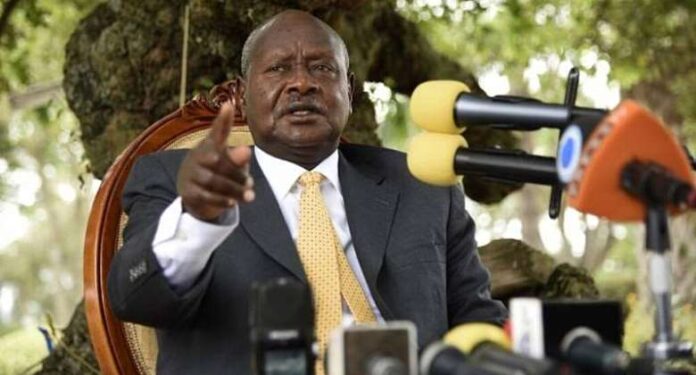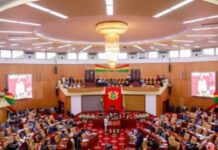Ugandan President Yoweri Museveni has said that his son will stay off Twitter when it comes to affairs of state, after a social media tirade that included a threat to invade neighbouring Kenya.
The move comes as media groups have asked Uganda’s top court to scrap a new digital communications law which they say breaks the constitution and cripples free speech.
Museveni’s son, general Muhoozi Kainerugaba, has often caused controversy with his comments on Twitter but his particularly undiplomatic outburst earlier this month caused his father to step in.
Speaking during a TV interview, the Ugandan president said “He will leave Twitter. We have this discussion. Twitter is not a problem. The problem is what you are tweeting about.”
He added, however, that Kainerugaba would still be able to take to social media as long as he restricts himself to comments about sport, for example: “Talking about other countries and partisan politics of Uganda is something he should not do and he will not do it.”
The president apologised to Kenya in early October after Kainerugaba, amid other remarks, suggested taking his troops to capture Nairobi.
- Nine Ugandan journalists arrested for ‘offensive’ communication: police
- Ugandan novelist Rukirabashaija released on bail, recovering from ‘torture’ after insulting tweet
He also scolded Kenya’s former leader Uhuru Kenyatta for not attempting an unconstitutional third bid at the presidency in the August elections, in what was seen as a slight against the newly elected President William Ruto.
Kainerugaba has since apologised to Ruto for his remarks.
In the interview, Museveni nevertheless defended his son as a “very good general”, after promoting him to the rank despite stripping him of his role as leader of Uganda’s land forces.
Petition to scrap new digital media legislation
Meanwhile, media groups have called for the scrapping of a new digital communications law – the “Computer Misuse (Amendment) Act” – which came into force last week.
The legislation bans people from using a computer to send any information that might ridicule or degrade someone.
It also outlaws the recording or videoing of anyone without their consent, among other clauses, and has penalties ranging from fines to jail time.
Ruling party officials and other supporters of the legislation have argued it will curb hate speech, protect children and stop the sharing of false or malicious information.
President Museveni, who signed the bill into law last Thursday, has regularly complained about what he calls lies against his government on social media.
Rights groups have called the law draconian, and said it adds to the arsenal authorities use to target critical commentators and punish independent media.
In their filing to the Constitutional Court, the 13 petitioners said the law was unconstitutional, ambiguous and criminalised freedom of expression.















